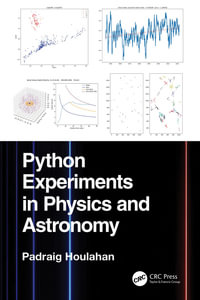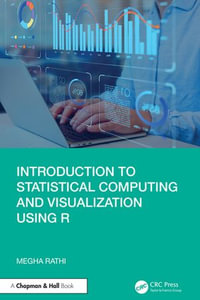
eTEXT
Lectures on Formal Methods and Performance Analysis
First EEF/Euro Summer School on Trends in Computer Science Berg en Dal, The Netherlands, July 3-7, 2000. Revised Lectures
By: Ed Brinksma, ?Holger Hermanns, ?JoostPieter Katoen
eText | 29 June 2003 | Edition Number 1
At a Glance
eText
$84.99
or
Instant online reading in your Booktopia eTextbook Library *
Read online on
Desktop
Tablet
Mobile
Not downloadable to your eReader or an app
Why choose an eTextbook?
Instant Access *
Purchase and read your book immediately
Read Aloud
Listen and follow along as Bookshelf reads to you
Study Tools
Built-in study tools like highlights and more
* eTextbooks are not downloadable to your eReader or an app and can be accessed via web browsers only. You must be connected to the internet and have no technical issues with your device or browser that could prevent the eTextbook from operating.
ISBN: 9783540446675
ISBN-10: 3540446672
Published: 29th June 2003
Format: PDF
Language: English
Publisher: Springer Nature
Edition Number: 1
You Can Find This eBook In
Non-FictionComputing & I.T.Computer Programming & Software DevelopmentSoftware EngineeringComputer ScienceSystems Analysis & DesignDigital Lifestyle & Online World: Consumer & User GuidesPortable & Handheld Devices User GuidesComputer HardwareNetwork HardwareComputer Architecture & Logic DesignComputer Networking & Communications
This product is categorised by
- Non-FictionComputing & I.T.Computer Programming & Software DevelopmentSoftware Engineering
- Non-FictionComputing & I.T.Computer ScienceSystems Analysis & Design
- Non-FictionComputing & I.T.Digital Lifestyle & Online World: Consumer & User GuidesPortable & Handheld Devices User Guides
- Non-FictionComputing & I.T.Computer HardwareNetwork Hardware
- Non-FictionComputing & I.T.Computer ScienceComputer Architecture & Logic Design
- Non-FictionComputing & I.T.Computer Networking & Communications
- Non-FictionComputing & I.T.Computer Science
- Non-FictionComputing & I.T.Computer Hardware























